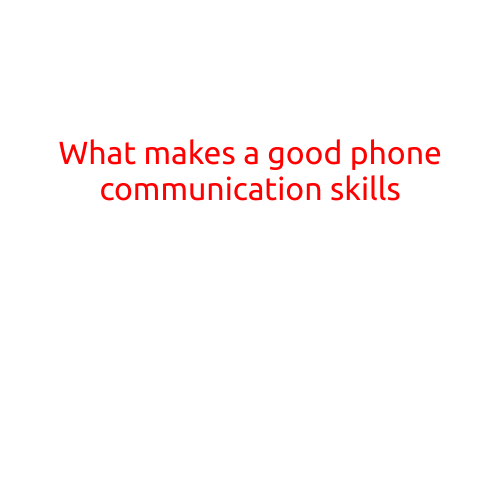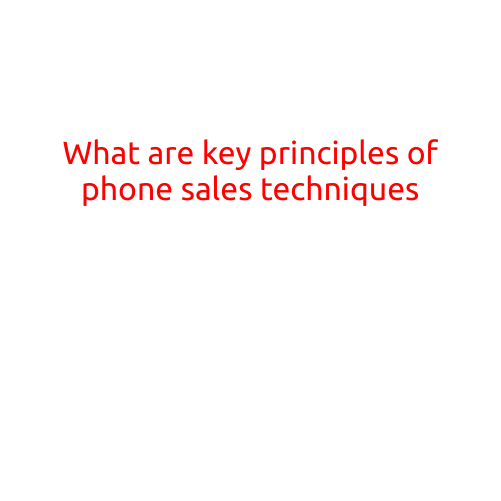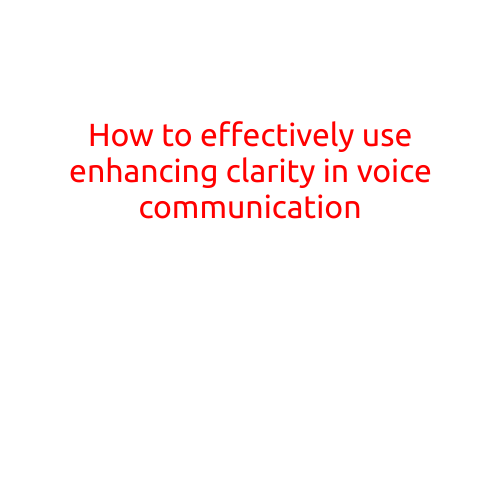
What Makes a Good Phone Communication Skills
In today’s fast-paced digital age, phone communication has become an essential part of our daily lives. Whether it’s personal or professional, the ability to communicate effectively over the phone is crucial for building strong relationships, resolving issues, and achieving goals. However, with the rise of instant messaging apps and social media, the art of good phone communication has become a lost art for many.
So, what makes a good phone communication skills? Here are some key factors to consider:
Active Listening
Good phone communication starts with active listening. It’s essential to focus on the person on the other end of the line and pay attention to what they are saying. This means avoiding distractions, such as checking emails or browsing the internet, and giving the speaker your undivided attention. Active listening also involves paraphrasing and summarizing what the person is saying to ensure understanding and show that you’re engaged in the conversation.
Clear and Concise Language
Using clear and concise language is critical when communicating over the phone. Avoid using jargon, technical terms, or complex sentences that may confuse the listener. Instead, use simple, straightforward language to convey your message. This will help ensure that the person on the other end of the line understands what you’re saying and can respond accordingly.
Confidence and Assertiveness
Phone communication requires confidence and assertiveness. Whether you’re ordering food over the phone or negotiating a business deal, it’s essential to be clear and firm in your communication. Avoid apologetic or hesitant language, and instead, use a strong, assertive tone to convey your message.
Empathy and Understanding
Good phone communication also involves empathy and understanding. Put yourself in the other person’s shoes and try to see things from their perspective. This will help you build rapport and establish trust, which is essential for effective communication.
Time Management
Phone communication requires good time management skills. Whether you’re making a quick call to confirm an appointment or conducting a lengthy conversation with a client, it’s essential to manage your time effectively. Set a clear agenda for the call, stay focused, and avoid going off on tangents.
Tone and Inflection
The tone and inflection of your voice can make or break a phone call. A friendly, approachable tone can help put the person on the other end of the line at ease, while a gruff or aggressive tone can lead to misunderstandings and conflict. Practice using a warm, friendly tone that conveys empathy and understanding.
Avoiding Distractions
Phone communication requires a distraction-free environment. Turn off your phone, log out of social media, and find a quiet space where you can focus on the conversation. Avoid interrupting or multitasking, and instead, give the person on the other end of the line your full attention.
Following Up
Good phone communication also involves following up after the call. Whether it’s sending an email or making a note in your calendar, it’s essential to follow up on any commitments or actions discussed during the call. This will help keep the conversation going and build trust with the person on the other end of the line.
Conclusion
In conclusion, good phone communication skills are essential for building strong relationships, resolving issues, and achieving goals. By focusing on active listening, clear and concise language, confidence and assertiveness, empathy and understanding, time management, tone and inflection, avoiding distractions, and following up, you can become a master of phone communication. Remember, good phone communication is a skill that can be developed with practice and patience.





